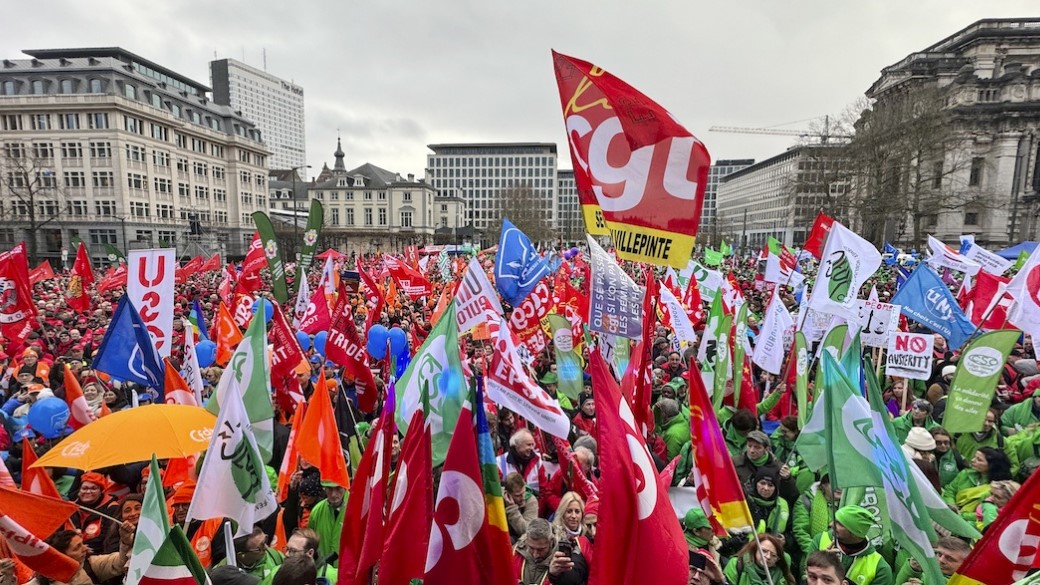On December 12, trade unionists, political parties, and other working-class sections from around 30 countries participated in a major demonstration led by the European Trade Union Confederation (ETUC) protesting the EU-imposed austerity in the region. The march was organized against the backdrop of the summit of EU leaders in Brussels on December 14 and 15 to find a consensus over a controversial reform of the EU’s economic governance rules called the ‘Stability and Growth Pact.’
Around 15,000 people marched in Brussels behind the banner Together Against Austerity sending a clear message to leaders that there must be no return to austerity.
The ETUC and the trade unions have alleged that the enforcement of the European Union’s (EU) Stability and Growth Pact will lead to combined cuts worth EUR 45 billion (USD 49 billion) from the budgets of 14 member states in the upcoming year, resulting in the further impoverishment of lives of workers and low and middle-income households.
The pact, which aims to limit debt and deficits for member countries through budget cuts and restructuring, was suspended during the COVID-19 pandemic but is likely to be reactivated by next year. According to the Pact, member states with a deficit above 3% of GDP would have to reduce their budget deficit by a minimum of 0.5% of GDP every year.
Over the past few years, with the energy crunch and cost of living crisis exacerbated by the war in Ukraine, trade unions across Europe have organized multiple protests and mobilizations demanding an effective pay rise to combat soaring inflation. The working class sections and low-income households in Europe continue to grapple with a mounting cost of living crisis and the aftershocks of the COVID-19 crisis. More austerity on top of the ongoing crisis will drag the workers into deep distress.
On December 12, ETUC general secretary Esther Lynch said a return to austerity “would kill jobs, lower wages, mean even less funding for already overstretched public services, and all but guarantee another devastating recession.”
While extending solidarity with the protest in Brussels, the Workers’ Party of Belgium (PTB/PVDA) stated, “This austerity means for us less money for schools, hospitals, social policies, but also future cuts in pensions or wages. Austerity is decided by European politicians who earn 14,000 euros (over USD 15,000) a month.”
“Today, the European working class is sending a clear signal: we don’t want it. We will relay this fight in the street and the European Parliament,” the party added.





